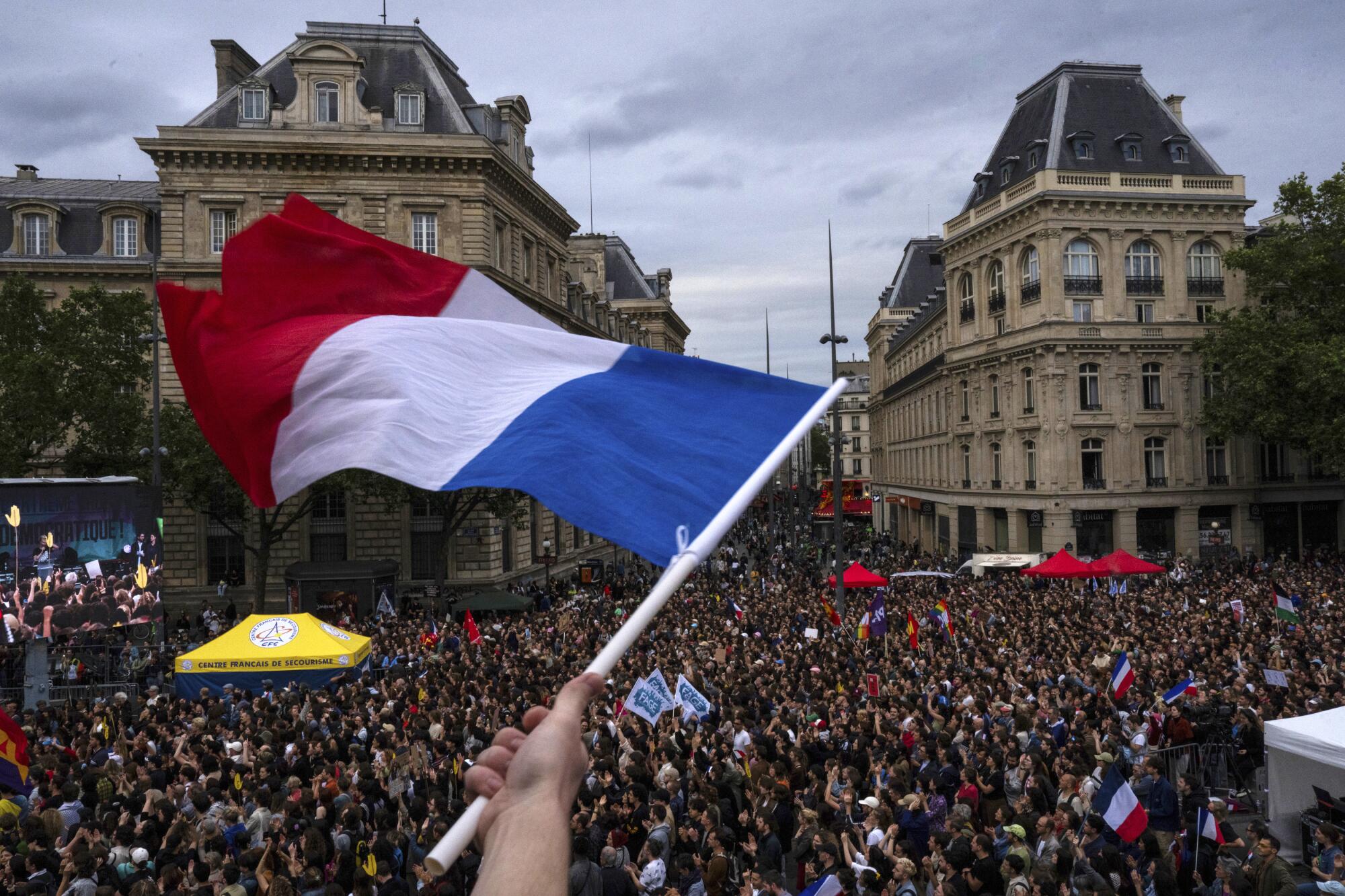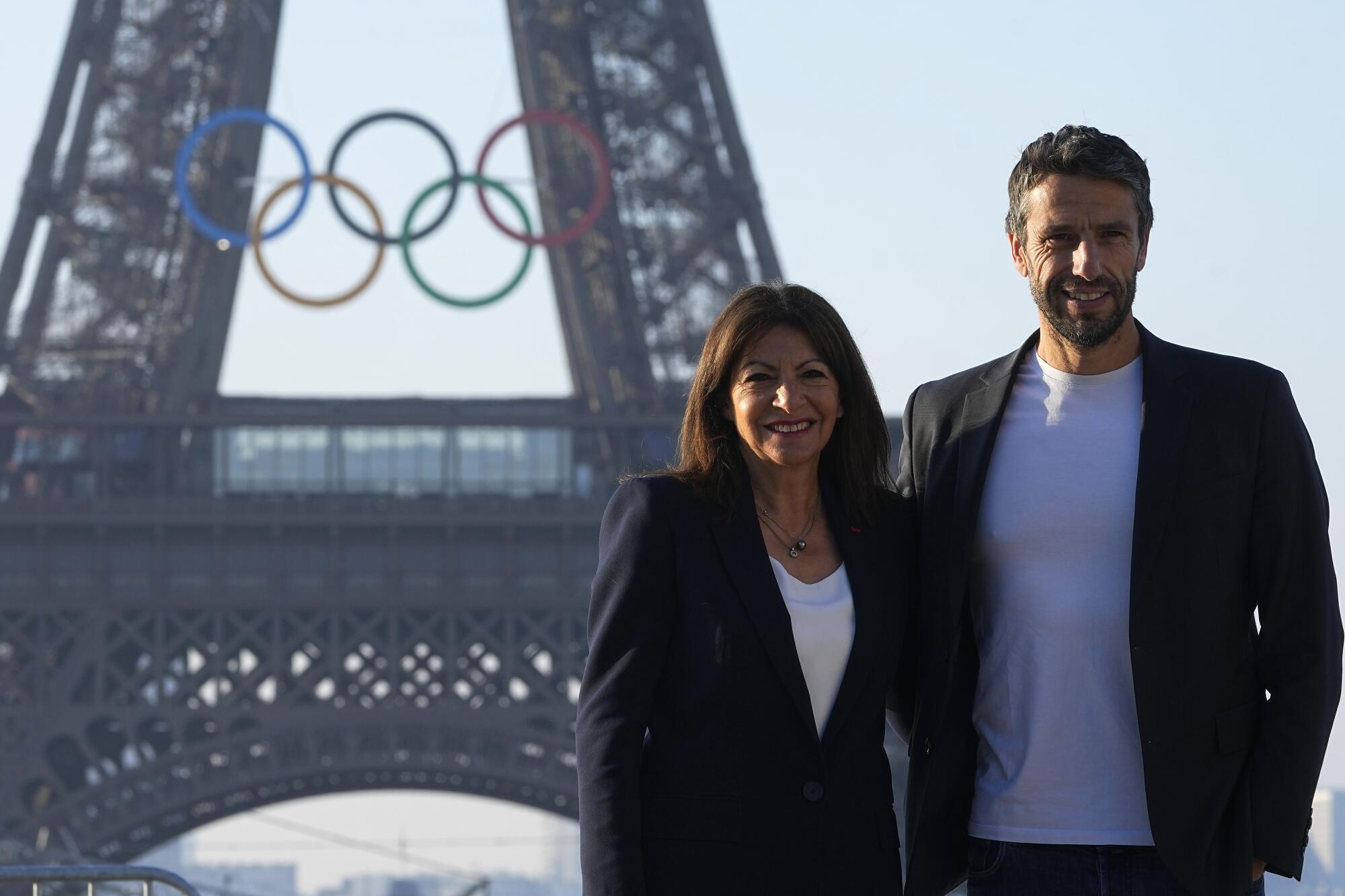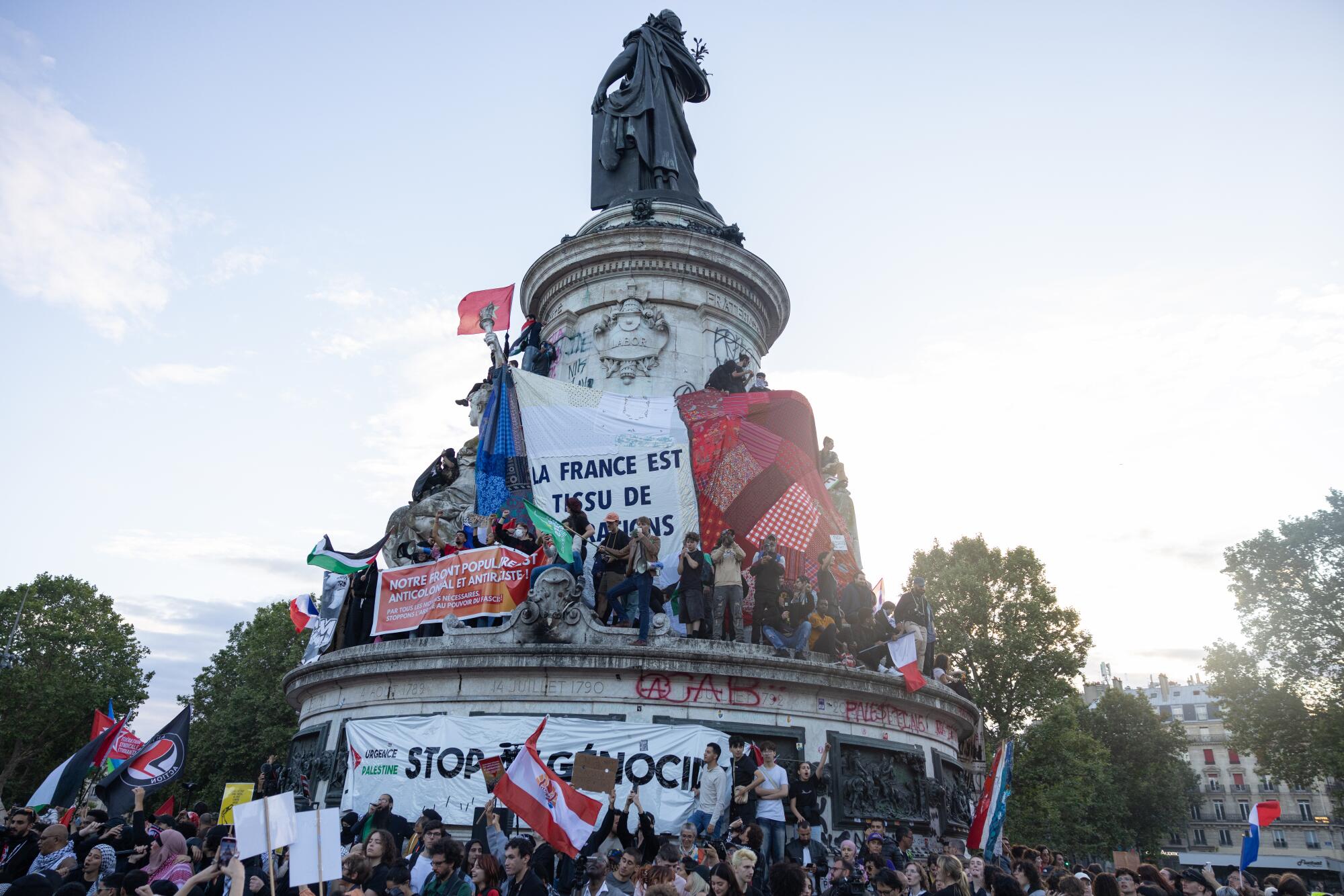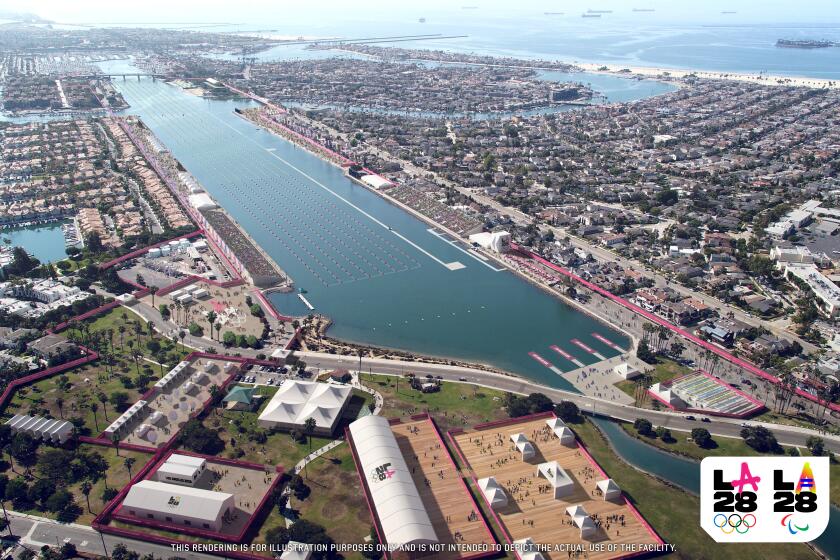
- Share via
With all the tumult surrounding the 2024 Summer Olympics — problems both large and small — it isn’t entirely surprising that Parisians have threatened to stage a “poop protest.”
Their anger focuses on a plan to have triathletes and marathon swimmers compete in the Seine River, which has been fouled by sewage and trash for centuries.
It didn’t help when Mayor Anne Hidalgo offered to take a dip in the iconic waterway. A website with a poop emoji as its mascot sprang up to coordinate hundreds, if not thousands of people defecating along the banks on the day of her swim.
While it remains to be seen if the mayor — and her constituents — will make good on their respective pledges, the Paris 2024 organizing committee has plenty more issues to address. With the opening ceremony less than two weeks away, the list includes budget increases and worrisome poll numbers, a government investigation and political upheaval both at home and abroad.
None of this means the Games are doomed. Paris will offer a stunning backdrop with beach volleyball at the foot of the Eiffel Tower and equestrian events at Versailles. These will be the first post-pandemic Games, promising big crowds and a buzz in the streets.
But recent turmoil underscores the complexity of welcoming thousands upon thousands of athletes and fans from around the world. French President Emmanuel Macron acknowledged to the AFP news agency that the Olympic Games, no matter where they take place, are bound to create “inconveniences.”
History shows that some cities successfully navigated the obstacles. The 1984 Los Angeles Olympics, for example, offered stirring competition and finished with hundreds of millions in surplus revenue. Other hosts have not been as fortunate.
Montreal and Athens accrued massive debt. Rio de Janeiro spent billions on new venues that went virtually unused afterward. The 1972 Munich Games were marred by Palestinian terrorists infiltrating the athletes village, an attack that left 11 Israeli team members dead.
More recently, Tokyo and Beijing struggled to generate revenue amid COVID-19 restrictions.
Paris believes its gamble will pay off. “It’s going to do our country some good,” Hidalgo said when her city was named as host in 2017.

The main concern with any Olympics is funding and, in Paris’ case, a plan to cover a majority of expenses with privately raised money. As the budget has grown significantly to a reported $10 billion, organizers have come under increased scrutiny, including an investigation into construction contracts they awarded and the decision to pay president Tony Estanguet an annual salary of $290,000 plus incentives.
Last summer the French Court of Auditors cited “uncertainties” in the budget and suggested that, depending on how much revenue is generated, the Games might require an infusion of $3.2 billion or more in government funds. Amid complaints about ticket prices, a 2023 poll suggested that 44% of residents in and around Paris have come to think of hosting as a “bad thing.”
“For us, an event of Olympic proportions cannot be held without corruption,” said Saccage 2024, a French anti-Olympics coalition. “It’s the size of the event that makes it necessary, whatever the country.”
Unions representing public-sector employees such as police and air traffic controllers have demanded bonuses for working the 17 days of the Games, which coincide with France’s traditional summer holiday. Threatened strikes could cripple the city.
Activists have raised concerns about the displacement of homeless people, and national restrictions on customarily Islamic dress have sparked discussions about what visiting athletes and visitors will be allowed to wear.
If all of this weren’t enough, Macron recently called for a snap election that could have shifted power to the far-right National Rally party. Though the left-wing New Popular Front coalition prevailed, with Macron’s centrist party finishing second, legislators must now forge new alliances to avoid parliamentary disarray.

Organizers “probably had every contingency scenario on their operation sheet,” said Michael Payne, a former International Olympic Committee executive. “They certainly didn’t have that one.”
Nor could they have foreseen the Russia-Ukraine and Israel-Hamas wars forcing them to deal with street protests and disagreements over which athletes should or should not be invited.
So the world is watching to see what happens next. Los Angeles officials, on deck to host in 2028, are particularly interested.
“If somebody has done it before me, I want to know what they learned,” Mayor Karen Bass said after a recent fact-finding mission to France. “Pros and cons.”
Paris organizers can only hope their Olympics follow a familiar trend.
The Games often generate controversy in the weeks and months beforehand. As Payne said: “It’s not simple to bring all this together because the organizing committee goes under the magnifying glass. The slightest issue gets exploded.”
Long Beach will host seven sports and Dignity Health Sports Park in Carson will host four as part of an updated venue plan for the 2028 Olympics.
Then comes the opening ceremony.
On July 26, Paris will stage an innovative celebration with officials and athletes cruising down the Seine in boats. An organizing committee executive swam in the river over the weekend and Hidalgo was still promising to jump in, citing recent testing that showed what she called acceptable bacteria levels.
Once the competition begins, gold medals and world records commandeer the headlines as television sharpens the focus with artful, carefully framed camera shots. Public opinion tends to shift in a positive direction.
“The organizers and the IOC are praying for the sports to start,” Payne said. “Once they start, that becomes the story.”
For 17 days. After that, people can start complaining again.
More to Read
Go beyond the scoreboard
Get the latest on L.A.'s teams in the daily Sports Report newsletter.
You may occasionally receive promotional content from the Los Angeles Times.







